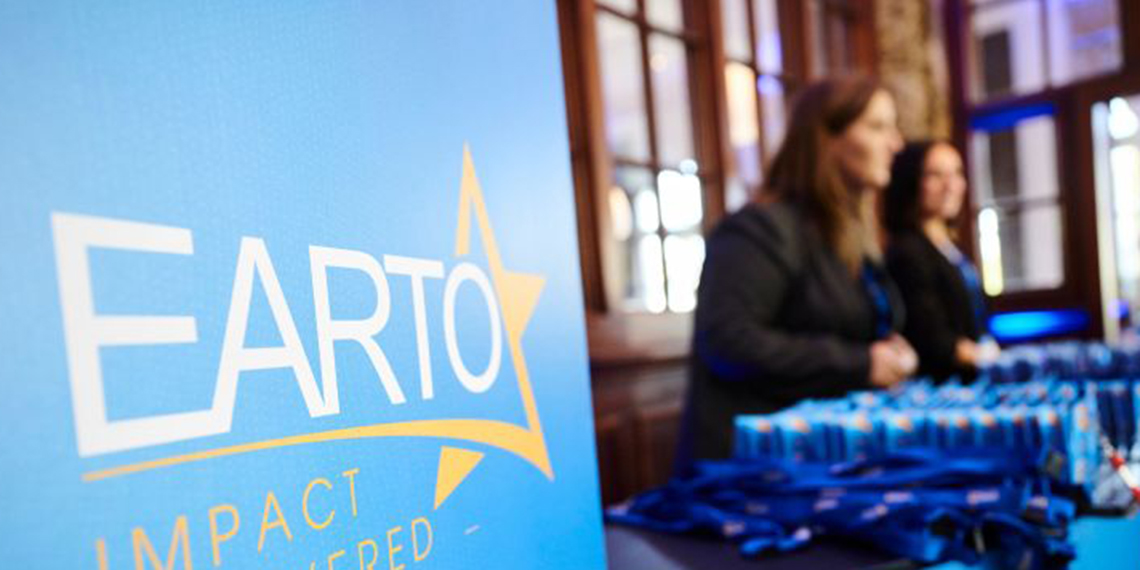They drive innovation, enhance quality of life, and bolster economic competitiveness, reinvesting revenue into new innovation cycles – this is the fundamental role of Research and Technology Organisations (RTOs) that operate across the public and private sectors. This statement comes from EARTO – the European Association of Research and Technology Organisations – which recently published a report on the economic impact of 15 European institutions. INESC TEC, a member of EARTO and recent recipient of its European Innovation Award, is one of the organisations that contributed to this report, which analysed data from the 2021-2022 period.
According to the same report, one can highlight several key conclusions regarding the footprint of RTOs, starting with the direct, indirect, and induced economic effects. In 2022, the 15 institutions under analysis – AIT (Austria), CEA (France), DTI (Denmark), Eurecat (Spain), imec (Belgium), INESC TEC (Portugal), JSI (Slovenia), NIC (Slovenia), RISE (Sweden), SINTEF (Norway), Tecnalia (Spain), TNO (Netherlands), Tyndall (Ireland), VITO (Belgium), and VTT (Finland) – contributed to the creation of approximately 245,000 jobs within the European economy, through activities generating a total turnover of around €37.7 billion. The fiscal return from these activities reached approximately €6.6 billion, encompassing core activities, contract research, spin-off activities, etc. – with roughly €3 billion stemming from the core activities of said organisations.
Regarding Contract Research – i.e., R&D projects carried out by these institutions under contracts with other entities – the revenue stream was around €2 billion worth of contracts (€1.5 billion in Europe). This in turn translated into an additional 104,000 jobs and a turnover of €16.1 billion – this does not include publicly funded research projects.
As for spin-offs created by these institutions and active at some point during 2021-2022, the report indicates a total of 393 spin-offs. They generated nearly 19,000 jobs and a turnover of €2.8 billion. The first-year survival rate of these spin-offs stands at 98% – significantly higher than the European average of around 81%, demonstrating the robustness and sustainable impact of these companies. On average, these businesses remained active for 9.7 years before ceasing operations or merging.
It’s worth emphasising three additional aspects that characterise RTOs’ impact on the European economy: employment multiplier, the return on government investment, and the outflow of staff. Regarding the first, for every direct job at these institutions, nearly five additional jobs were generated across the European economy. In terms of the return on government investment, for each euro invested by various governments into these institutions, there was a return of over two euros in tax revenue for national governments. Finally, concerning the outflow of staff, around three thousand highly qualified and experienced employees have left the RTOs each year, with 80% remaining in the same country of the RTO, and 72% moving to private organisations, thus contributing to knowledge transfer into the business sector.
“The study highlights the crucial role of RTOs, not only as drivers of technological innovation but also as catalysts of employment, economic value, and significant fiscal returns for European countries. This report provides a thorough analysis of direct, indirect, and induced economic effects, providing an innovative outlook on the financial impact and multiplier effect these institutions have on the European economy. Based on robust metrics, this analysis presents essential data for an informed and strategic debate on the role of institutions like INESC TEC in strengthening Europe’s innovation ecosystem,” concluded João Claro, Chairman of the Board of INESC TEC.
Concerning INESC TEC, the data analysed included employment, turnover, costs, acquisitions, the amount of public funding, contract research, spin-offs, the average lifespan of spin-offs, and staff outflow. The report was developed by Idea Consult, a Belgian consultancy agency hired by EARTO to carry out this study.
The researcher mentioned in this news piece is associated with INESC TEC and UP-FEUP.


 News, current topics, curiosities and so much more about INESC TEC and its community!
News, current topics, curiosities and so much more about INESC TEC and its community!